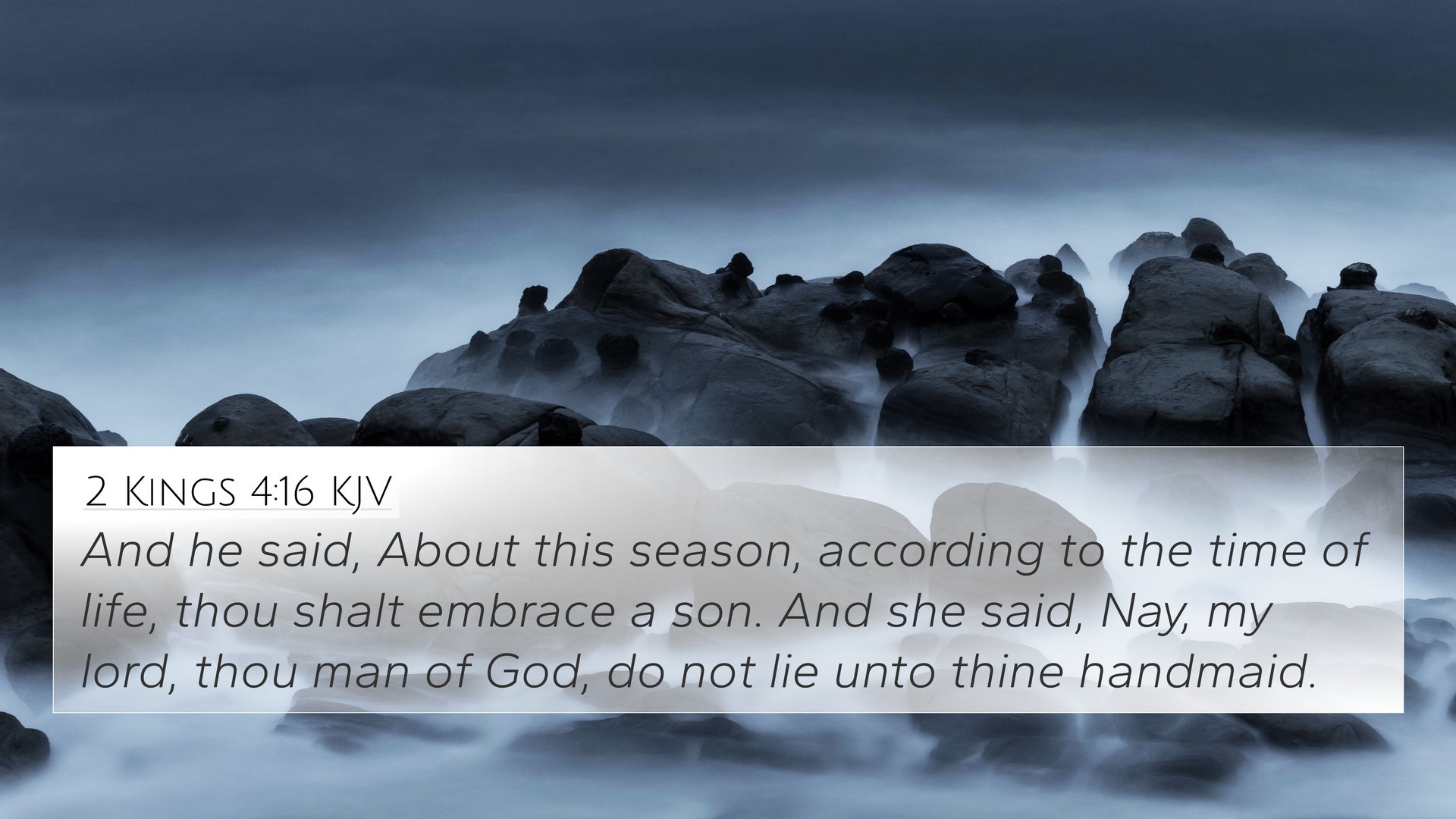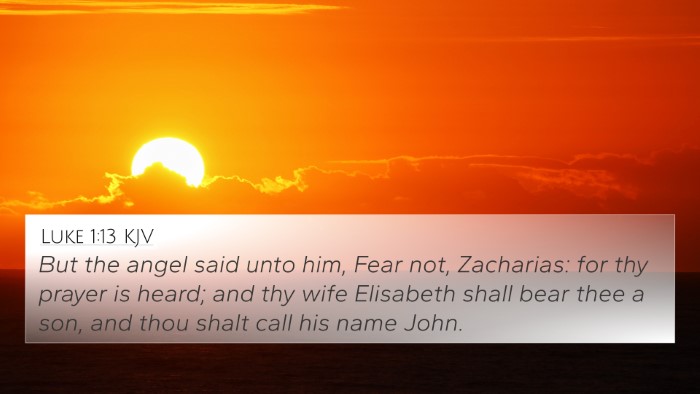Understanding 2 Kings 4:16
Bible Verse: 2 Kings 4:16 - "And he said, About this season, according to the time of life, thou shalt embrace a son. And she said, Nay, my lord, thou man of God, do not lie unto thy handmaid."
This verse represents a profound moment in the life of the Shunammite woman, whose faith and willingness to serve God’s prophet leads to a miraculous promise. Below is a summary of its interpretations based on insights from public domain commentaries by Matthew Henry, Albert Barnes, and Adam Clarke.
Commentary Insights
Matthew Henry's Commentary
Henry highlights the importance of faith and the promise of God. He notes that the Shunammite woman's modesty and humility are reflected in her response to Elisha's prophetic declaration. Despite her doubts, she was given a son, showcasing God's mercy and power to fulfill what seems impossible.
Albert Barnes' Notes
Barnes emphasizes the significance of time in this verse. The phrase "according to the time of life" suggests a divine timetable for events in the lives of believers. He draws attention to the consistent faithfulness of God in providing for His people and highlights the covenantal aspect of the promise made to the woman.
Adam Clarke's Commentary
Clarke offers insight into the cultural context, noting that the Shunammite woman had previously shown great hospitality to Elisha. He interprets her initial denial as a protective mechanism against disappointment, stressing that the promise of a son reflects God's recognition of her faithfulness and service.
Thematic Connections with Cross-Referencing
2 Kings 4:16 can be connected with several other Bible verses that share similar themes of faith, promise, and divine intervention. Here are some crucial cross-references:
- Genesis 18:10: The promise of Isaac to Abraham and Sarah parallels the miraculous conception promised to the Shunammite woman.
- Luke 1:13: Gabriel’s announcement to Zechariah about John the Baptist reflects a similar promise of a child despite doubt.
- 1 Samuel 1:20: Hannah's prayer for a son and God’s response also demonstrate God's faithfulness to those who trust in Him.
- Matthew 19:26: Jesus states that with God, all things are possible, reiterating the theme of divine capability beyond human understanding.
- Romans 4:20-21: Abraham's unwavering faith parallels that of the Shunammite woman, trusting God against all odds.
- Hebrews 11:11: This verse illustrates the faith of Sarah, connecting Old Testament promises of children with New Testament faith.
- Galatians 4:28: The spiritual analogy of Isaac as a son of promise aligns with the Shunammite experience of divine grace.
- James 5:17-18: The prayer of faith that can yield miraculous results highlights the importance of aligning faith with divine will.
- Luke 7:13: Jesus raises the widow's son—another reflective act of compassion and divine intervention historically documented.
Inter-Biblical Dialogue and Themes
The dialogue between the Old and New Testament is illustrated in 2 Kings 4:16, exemplifying how God's promises transcend time. The Shunammite's faith and the fulfillment of the promise to her son can be seen as a collective inspiration throughout scripture. By understanding these connections, believers can deepen their insights into God’s character and His ongoing commitment to His people.
Conclusion
Reflecting on 2 Kings 4:16 encourages readers to consider the themes of faith, divine promise, and the importance of trusting God in seemingly impossible situations. The commentaries and cross-referencing of Biblical texts provide an enriching understanding of this verse and its relevance across scripture.















